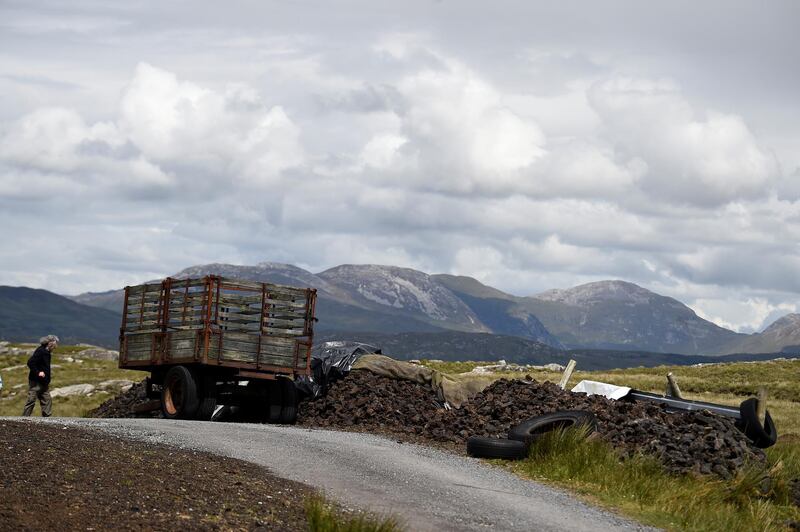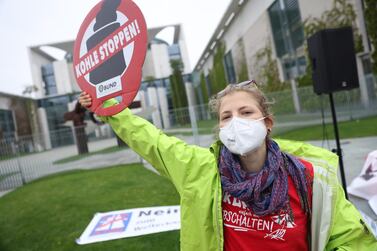The UK will ban the sale of peat compost under new measures to tackle carbon emissions and climate change.
Environment Secretary George Eustice announced the plans on Tuesday as part of the government's fight against the climate crisis and commitment to carbon neutrality.
The UK has about 2.6 million hectares of peatland, but the peat in England currently emits about 10 million tonnes of carbon dioxide every year owing to their degraded state.
Healthy peatlands can help tackle climate change by trapping up to three times more carbon than woodland forests, while also protecting fragile natural habitats from flooding. But if the peat is damaged or dug up to sell it loses these functions.
Under the initiative, £50 million ($70.9m) has been pledged to support the restoration of 35,000 hectares of peatland by 2025, representing 1 per cent of the UK's total.
“Peatlands are our biggest terrestrial carbon store and home to some of our rarest species,” Mr Eustice said.
“But only 13 per cent of our peatlands are in a near-natural state [and] due to damage and degradation, our peatlands are emitting 10 million tonnes of CO2 per year in England.”
Plans also include the establishment of a Species Reintroduction Taskforce which will work to restore extinct species to the UK's wilderness, including wildcats and beavers.
The plan will be enshrined in an amendment to the Environment Bill, which sets a legally binding species target for 2030.
About 300 wildcats are believed to roam the Scottish countryside but have been extinct in England for centuries. It is hoped the new measures will lead to their return.
"We will be amending the Environment Bill to require an additional legally binding target for species for 2030, aiming to halt the decline of nature," Mr Eustice said.
"We hope that this will be the net zero equivalent for nature, spurring action of the scale required to address the biodiversity crisis.”
He also announced plans to triple tree planting rates in England to create 7,000 hectares of new woodland a year by 2024, paid for by a £500 million fund.
Our Secretary of State has set out our vision to restore nature and #BuildBackGreener.
— Defra UK (@DefraGovUK) May 18, 2021
Trees, peatlands and species restoration are vital in tackling the twin crises of climate change and biodiversity loss.
Read the full speech ⬇️#TogetherForOurPlanet #COP26 #EnvironmentBill
Campaigners have been calling for an immediate ban on the sale of peat to gardeners after voluntary goals to end sales for amateur gardeners by 2020 were missed.
A recent survey by the Wildlife Trusts found that one out of 20 leading garden retailers pledged to eliminate peat from its shelves this year.
It said the move was “long overdue” and urged the government to make sure the sale of peat was banned before the UK hosted the Cop26 global climate change summit in Glasgow in November.
“The time for procrastination is over and we urge the government to get on with the consultation as soon as possible and make sure the sale of peat is banned before the UK hosts the global climate conference," Wildlife Trusts chief executive Craig Bennett said.








